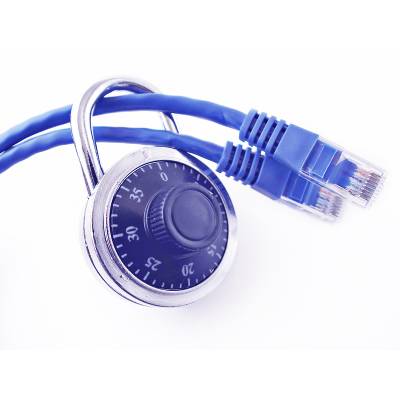Directive Blogs
X The Everything App®, formerly Twitter, has been experiencing a massive user loss for the past few weeks, with everyone from celebrities to average people evacuating from the platform. If you wish to join them for any reason, we’re sharing the process for fully extricating yourself and your data from this specific social media network.
In recent years, there has been much debate about how companies collect, sell, and use personal data. Many businesses make extra money by selling data they collect about people. This might seem like a side effect of all the data we create online, but it can lead to some tricky problems. Today, we'll look at something called the "data-broker loophole," how it works, and what we can do about it.
As technology continues to gain prominence in healthcare, it plays an increasingly vital role. Advancements in technology have allowed the healthcare industry to stabilize costs, improve access, and personalize care delivery—objectives that were challenging in the past. These benefits come with a potential downside: data privacy issues, which are becoming more concerning as technology advances.
Facebook remains one of the most visited places on the Internet. Meta (the parent company to Facebook) also features WhatsApp and Instagram on their roster and has faced numerous security and privacy failings over the years. In this week’s blog, we’ll take a brief look at some of the most noteworthy.
Hackers are always on the lookout for personally identifiable information, or PII, as it’s an immensely lucrative resource. You’ll need to protect it if you want your business to continue operating safely and efficiently. Let’s go over what PII entails and what kinds of data you might find under this term.
Compliance is a critical element of many businesses’ requirements, with pretty severe penalties as a consequence if the prescribed standards are not met. Even more importantly, most compliance requirements and regulations are put in place for the welfare of not only the business, but its clientele as well. This makes it critical to know which apply to your business, and how to meet them fully.
Your business is likely subject to certain compliance laws and regulations depending on the type of data you collect from your clients or customers. Today, we want to emphasize the importance of your business considering regulation and compliance when managing its data and IT resources, as without doing so, you run considerable risk.
These days, data privacy is absolutely critical in both a business and individual context. In some locations, governments have introduced legislation to protect consumers, and in others, there is significant pushback in favor of fewer regulations on business. How does data privacy factor into your business’ operations?
In 2004, a service called VirusTotal was launched and swiftly became a popular antivirus and malware scanner to help detect threats in various files and URLs. It became popular enough that it was officially acquired by Google in 2012 and ultimately assimilated into Chronicle, a cloud-based security operations suite for enterprise businesses. Despite this impressive pedigree, however, we find ourselves able to look to VirusTotal as a sobering reminder of how fickle cybersecurity can be, with the service being the source of some limited data exposure.
Digital monitoring is a bit of a contentious topic in business, but according to a survey from Gartner, it might not be as contentious of a topic as previously thought. In fact, employees are often in favor of digital monitoring under the appropriate circumstances, as long as it doesn’t get in the way of their jobs.
This is a true story, and a perfect lesson on how cybercrime and scammers use your emotions against you to get you to fall for their tricks. I think it’s also a lesson on just how helpless a victim of a scammer can become, as well as how immune the bad guys are while performing these horrible acts on people.
When it comes to security, one often overlooked tool is the virtual private network, or VPN. We recommend that all businesses use a VPN to keep remote and hybrid workers from inadvertently putting your business’ data at risk while out of the office. Let’s go over why a VPN is so effective, as well as what you should look for in a business-grade VPN tool.
Cybercrime is the fastest growing criminal activity in the world. From the largest enterprise to the individual, it can affect anyone, anywhere. To help ensure the cybersecurity of American citizens and their businesses, the Department of Homeland Security (DHS), United States Computer Emergency Readiness Team (CERT), and the Federal Bureau of Investigation (FBI) and other agencies work together every October to raise awareness about the threats people face online through a series of educational events and activities.
Who are you? While it’s a question that’s been asked in all contexts with all levels of metaphysicality attached—from asking someone their name to prompting someone to follow a path of spiritual self-discovery—the growth of the metaverse once again urges us to ask it in a more literal way. When accessing a conglomeration of various services and platforms, how many identities will each user need to juggle?
We aren’t going to try and pretend that the investments necessary to preserve your business’ data security are small ones. Especially at first glance, you may very well start to question if such an investment is truly necessary.
The simple fact of the matter is that, compared to the costs that a breach of privacy will incur, the investment you put into your security measures will suddenly seem like a real bargain.
It probably isn’t a question you’ve put much thought to, but tell me: who do you think feels the greatest impact from card skimming schemes, where a payment card’s data is captured so a cybercriminal can make use of the card’s associated account? While it isn’t a good situation for anyone, some are impacted more than others.
Chances are, you’ve gone through some old files and weeded through them, deleting what is no longer needed. This is especially important when you are upgrading your storage and getting rid of your existing storage media or an old computer. Let’s talk about what really happens when you’re doing so—chances are, you may be overlooking a serious security issue.
Have you ever wondered how some platforms will only have you log in once for all of your various needs, even though they might be different applications, websites, or services? This is essentially what single sign-on is, and it’s quite common in the technology world today. What is single sign-on exactly, and what kind of security does it actually provide for organizations that use it?
When we talk about data privacy in a business, the default is to generally think about the data the business has collected and compiled from its clientele. However, that’s just one type of data a business has. There’s also a lot of data that is collected by the business about that business’ employees. So, how well protected is this data?
With so many employees still working remotely, organizations have turned to technology to ensure that their workers are actually… you know, working. While the need to know what your employees are up to throughout the workday is important, there is now a discussion happening on whether or not this violates employees’ privacy.
As time has passed, cybersecurity attacks have become another way some organizations and nations engage in warfare. You can argue that there is a war going on at all times in cyberspace while hackers—many of which are sponsored by government agencies—try to outdo security researchers at all turns. One such scenario sees customers in the United States and Israeli defense technology sectors becoming the target of “password spraying.”
Have you ever wondered what it takes to hire a hacker to perform a specific task? Thanks to the findings of Comparitech, we can get a look into the average pricings of various hacking services that can be found on the Dark Web. While we would never condone ever taking advantage of such services, it’s a fascinating look into the business of cybercrime, and one that can give you an idea of just how easy and accessible it is for hackers to make your life difficult.
The term “encryption” has found its way into the mainstream, appearing just about anywhere information security is brought up. Whether it is ransomware encrypting data or the encryption protecting your password security, it is a powerful tool that can be used for both good and evil. Let’s discuss the former and how you might use encryption in the workplace.
The world might still be suffering from a pandemic, but travel is slowly starting to pick up once again. When you feel safe and comfortable traveling again, it is of critical importance that you take steps to secure your technology while out of the office—especially your mobile devices. Here are some big ways that you can prioritize security while traveling.
Data privacy is a bit of a hot topic in today’s business environment, especially with high-profile hacks and ransomware attacks emerging and putting organizations at risk. In particular, the emerging concept of “privacy engineering” has a lot of businesses thinking about how they can secure their organization and future-proof their data privacy infrastructures.
With many—if not most—computers and especially laptops featuring integrated webcams at this point, it isn’t hard to imagine how disastrous it would be to be spied on through it. Let’s take a few moments and go over a few ways to be sure that your webcam isn’t being used without your consent by someone else.
Facebook is many people’s favorite—or at least most used—app and it does bring value to people by letting them keep tabs on friends and family, or grow their businesses. It has grown to be one of the largest, most successful software technology companies in the world. Unfortunately, with that type of exposure comes the responsibility of securing massive amounts of personal data. In this quest, they leave a lot to be decided. Today, we take a look at the situation Facebook is in as they are dealing with one of the largest data leaks in history.
Just in case you haven’t been paying attention, online privacy has been highlighted significantly in recent years—in no small part due to the sale of our profiles by the tech giants that provide today’s most (in)famous websites… including and especially Google. Having said this, it is also important to acknowledge that some of Google’s recent policy changes could suggest that this may change at some point.
A lot has been made about biometric authentication over the past decade, so much so that it has been loosely integrated into a lot of the access control mechanisms on most modern mobile devices. Fingerprint scanners, retina scanners, and facial recognition are all part of the transition to biometrics to enhance security and privacy. For modern businesses, however, implementing biometrics can have some major drawbacks. Today, we will go over the pros and cons of biometric authentication.
If you are an avid reader of our blog, we are constantly saying how there are always a growing number of threats. This is true. Two-in-every-three business owners consider that their cybersecurity risks are increasing each year. The other third must not focus on them, and that is a problem. In fact, many business owners don’t give the proper respect to cyberthreats and many of those businesses pay the price. This is why every business should consider a security and compliance audit a mandatory part of their yearly IT assessment.
We’re getting close to the end of 2020. Finally? Has it been a long year for you? Has it gone by really fast? I think every other day I have a different opinion about it.
Either way, it’s time to look at 2021. A fresh start, a clean slate. I think if there is one big mindset all business owners and C-levels need to take into consideration for 2021, it’s their people.
While this time of year is always huge for online retail, there is likely to be a much larger number of people turning to the Internet for their holiday purchases than usual… and, it would seem, a larger number of people taking security into consideration as they do so. Let’s examine how consumers are taking their data into their own hands and what this means for your business.
Unfortunately, it is hard for the modern business to keep all of their data secure. There are just so many threats that most businesses leak data without even knowing it. There are things you can do, however. Today we will go through four considerations that can help you stay ahead of cybercriminals.
Smart assistants commonly appear in the office and home, so much so that the novelty seems to have finally worn off and they are now just another appliance—and, like any other appliance, there are a few quirks that can be frustrating to deal with. For instance, anyone living around these devices has shared a particular experience: the device registering something as a wake word that certainly wasn’t meant to be the wake word.
Keeping your network and infrastructure free from threats is always a priority, but with so many people working remotely businesses have encountered problems doing so. In fact, hackers, known for their opportunism, have been ultra-opportunistic during this period and it is causing many headaches for network administrators. Let’s take a look at some statistics that are definitely concerning as we head into the fall, where many experts expect the virus to become more problematic.
What if I were to tell you that, by the time you finished reading this sentence, all personal data in existence was exposed? If every text sent, every Google search executed, every website visited, everything we had ever done online, was made public? Gizmodo recently reached out to an assortment of experts for their insights. Here, we’ve assembled their responses for you to consider.
How concerned are you about your data privacy, as a consumer, particularly when you entrust it to another business? If you answered “very”, you aren’t alone… 87 percent of Americans consider their data privacy to be a human right. Having said that, most don’t pay near enough attention to their own security precautions. Let’s take a few moments and examine this trend.
While there is no question that security is important to any business, there is often a disconnect between this principle and any actual implementations that it reflects. Unfortunately, this can often leave a business vulnerable. To prevent this outcome, it is important that you follow a few best practices when it comes to fortifying your business against attack.
Wherever there is money, there are scammers. So it may not be a big surprise that scammers are out en masse trying to get between you and your federally mandated stimulus money. It’s bad enough that we’ve already seen a couple of phishing scams using the COVID-19 pandemic that are designed to help hackers get into accounts they have no business in, now that these scammers know that people are getting cash, the scams are kicked up a notch.
Our Network Operations Center (NOC) has noticed an alarmingly high number of local business accounts leaked on the Internet.
Is access to your email, your bank accounts, your website, or your social media accounts being bought and sold on the online black market? It’s more likely than you might think.
The inclusion of biometric security systems have been all the rage in a range of organizations, due, in large part, because of the thought that other security platforms aren’t nearly as secure. Unfortunately, the superior security they are expecting may not be able to meet their expectations. Today, we will discuss biometric security, where it fits, and how it can be problematic for the small business.
On July 26, 2019, New York Governor Andrew Cuomo signed the Stop Hacks and Improve Electronic Data Security (or SHIELD) Act into law. With the passing of this law, businesses with operations in New York now must put certain safeguards in place to help protect the private information disclosed to them by New York residents.
Personal information is precious, especially in this increasingly digital day and age. This makes it incredibly important that you are doing everything you can to protect it in your business - whether it is your own or belongs to somebody else. Here, we’ll go over a few tips to help you better protect the data you’re responsible for.
As you oversee your business, there is a lot that you’re going to have to manage - including how much access your employees have to the data you have collected and generated throughout your operations. An access management policy can help you to accomplish this. Here, we’ll review a few key features you need to include in your strategy.
Today, everything we do on the computer and on our phones creates data. Organizations that are good at utilizing this data, often look to capture everything that they can. This can leave the individual searching for a way to keep his/her data secure. Let’s take a look at some of the best practices used to prioritize individual data privacy.
Social media - we can’t live with it, but we really can’t seem to live without it. People who frequently read our blog will notice how often we discuss Facebook, one of the biggest players in the social media space. Seeing as privacy is one of the biggest concerns today, we’re wrapping up our short series on Facebook by reviewing the settings you might not have realized were options on your Facebook profile.
Nearly everyone uses Google in some way or another. The search engine is, by far, the most common way people get answers and find content online. The margins aren’t even close, either. Currently, Google handles about 90% of search queries, while the second and third place goes to Yahoo and Bing, who share just below 5% of the search market share.
Google curates the search results on the fly based on a lot of variables including where you are located, what kind of device you are on, and your online surfing habits. This means Google is collecting a lot of information about how we use the web to give us a better experience. Let’s look at how you can control what Google knows about you to better protect your privacy.
I want to start this article out by admitting that there are a lot of active threats out there these days. There are hackers--hacking collectives, actually--that’s whole purpose is to infiltrate businesses and steal data, money, and most often, the trust people have in their technology. One way to help keep your stuff secure is by relying on two-factor authentication.
We’ve been talking about Facebook quite a bit on our blog, and for good reason - we’re all concerned with our privacy, and Facebook has been notoriously front-and-center when it comes to Internet privacy. In this post we will break down Facebook’s privacy settings to help you gain control over your personal identity while using the social network.
With more than $16 billion being scammed from more than 16 million people, there is clearly an issue at hand that could use some expert insight. Those who are familiar with Steven Spielberg’s Catch Me If You Can might know that the movie was based on the memoirs of Frank Abagnale, former con man and longtime security consultant of the FBI. With his 45 years of experience with the bureau, Abagnale can safely by considered an expert in cybersecurity and fraud protection.
There’s a reason that cybercrime is so popular: it is no longer reserved for those with extensive programming knowledge to profit from. Now, according to a report by Deloitte entitled Black Market Ecosystem: Estimating the Cost of “Pwnership”, there is a complete economy built around easily accessible hacking tools that don’t require specialized knowledge to leverage.
 For all of you who have Windows 10, you probably have realized that it is, without a doubt, one of the most refined versions of the Windows operating system released by Microsoft in recent years. In a way, it takes the best aspects of Windows 7, combines them with the metro menu from Windows 8, and adds several great new features that improve the user experience. However, not all is well for Windows 10; many users are concerned with some of Windows 10’s questionable data collection policies.
For all of you who have Windows 10, you probably have realized that it is, without a doubt, one of the most refined versions of the Windows operating system released by Microsoft in recent years. In a way, it takes the best aspects of Windows 7, combines them with the metro menu from Windows 8, and adds several great new features that improve the user experience. However, not all is well for Windows 10; many users are concerned with some of Windows 10’s questionable data collection policies.
 Businesses all over the world are taking advantage of two-factor authentication, causing the password’s value to depreciate over time. Passwords aren’t powerful enough to keep users safe from advanced threats. Hackers are finding ways to punch holes in even the most comprehensive security solution, forcing users to focus on improving security through other means.
Businesses all over the world are taking advantage of two-factor authentication, causing the password’s value to depreciate over time. Passwords aren’t powerful enough to keep users safe from advanced threats. Hackers are finding ways to punch holes in even the most comprehensive security solution, forcing users to focus on improving security through other means.
2018 will be remembered as the year where data privacy was altered forever. From Facebook’s many problems to the launch of the European Union’s General Data Protection Regulation, data privacy has never been a bigger issue than it is today. Let’s take a look at how the GDPR has affected the computing world in 2018-19 and how the past year’s events have created new considerations in individual data privacy.
 In today's connected home, Internet security needs to extend beyond the PC. Any device that's connected to the Internet needs to be password protected, secured with a firewall, and utilize available security apps. These precautions should be taken even with seemingly harmless devices like baby monitors. A family from Ohio recently learned this lesson the hard way.
In today's connected home, Internet security needs to extend beyond the PC. Any device that's connected to the Internet needs to be password protected, secured with a firewall, and utilize available security apps. These precautions should be taken even with seemingly harmless devices like baby monitors. A family from Ohio recently learned this lesson the hard way.
Late in the summer this past year there were several articles written about how Google would continue to track the location of a person’s smartphone after they had chosen to turn their location settings off. A Princeton researcher corroborated those claims for the Associated Press, traveling through New York and New Jersey with locations services off only to be tracked the entire way. Today, we will discuss this issue, and tell you what you need to know to keep Google from tracking you wherever you go.
Encryption is a very important tool in today’s business environment, especially if you are trying to protect your email communications. Today, we’ll discuss the benefits of using encryption for your business’ communications solutions, but without an understanding of what encryption actually is, the conversation might be a little harder to understand.
The Internet of Things is now made up of over 15 billion devices. 15 billion. This number includes both consumer devices in a home environment as well as business devices that are typically used in an office setting. As such, you cannot risk ignoring this phenomenon, whether it’s from a security standpoint or one of practicality. We’ll discuss the many ways the IoT is shaping business practices in today’s modern office.
Everyone has a right to privacy. However, with the popularity of social networks, the Internet is a very hard place to remain a private individual. Digital communication is everywhere. Cybercrime has become a fairly regular event. This week’s tip of the week takes a glance at three websites that you can use to help enforce your right to privacy.
It is no secret that security is an absolutely crucial part of computing in the modern era. Data can very fairly be called the most valuable currency today, which means it needs to be protected. One way to do this is through the use of encryption keys. In this Tech Term, we’ll go over how these keys can protect your data, and how they do so.
In October of 2016, the Federal Communications Commission designed a set of rules known as the Broadband Consumer Privacy Proposal. These rules had intended to flip the status quo and require Internet service providers (ISPs) to gain their customers’ permission before they harvested their browsing histories to sell to advertisers. This proposal is now moot with the establishment of a new law that passed through Congress and was signed by President Trump in April 2017.
ATMs are, surprisingly enough, not the most secure pieces of technology out there, though there are efforts to improve security by taking advantage of mobile devices. Granted, this won’t be enough to protect against the considerable vulnerabilities in ATMs. In order to maximize security and minimize the amount of damage done by vulnerabilities, the user needs to understand how to protect themselves while using ATMs.
Ransomware is a tricky piece of malware that locks down the precious files located on a victim’s computer, then (in theory) will return access to them when a ransom has been paid. Depending on the files stored on a victim’s computer, they might simply blow it off and not worry too much about losing access to a couple of pictures or videos--but what if this ransomware threatened to expose your web browsing history?
It doesn’t matter if you’re a small business, a large enterprise, or if you're in a rural town, or a larger city. You still have to worry about the security of your data and the integrity of your infrastructure. Thankfully, there are services out there that allow even small businesses to leverage powerful, enterprise-level tools for maximum network security. The most valuable of all is perhaps the Unified Threat Management (UTM) tool.
In the last few months, there have been several high-profile data security breaches that resulted in the theft of millions upon millions of non-public information records. Though much of the focus in the aftermath of the breaches was on personal identity theft and prevention, it’s important to keep in mind that not all the stolen data records target individuals. Business entities are also at risk. Vendors and partners that you do business with regularly will probably have record of your company’s non-public information, payment information, or tax ID number.
Considering that since January 1st of this year, there has been upwards of 10 million personal information records lost or stolen each day, odds are that you, or someone you know, has had their records compromised by a data breach. With such a high incident rate, individuals and businesses that have never received any kind of notification that their records were included in a breach, generally consider themselves lucky and assume that they are not at risk of identity theft or unauthorized account usage. Unfortunately for them, that is not always the case.
There are many organizations in the world that simply can’t have cybercriminals and hackers interfering with their data. One of these organizations, CERN (whose acronym translates to the European Laboratory for Particle Physics) has far too powerful of a computer grid to allow hackers to access it. To keep it safe, CERN has deployed what may be the future of cybersecurity: artificial intelligence.
While many might see having a credit card stolen as identity theft, this is an oversimplification that can prove dangerous. While credit card theft can be an element of identity theft, equating the two means that other forms of identity theft are overlooked. In today’s blog, we’ll go over why identity theft and credit card theft aren’t exactly the same thing, and what you can do to help keep your business safe from damage.
In a statement given by Tom Bossert, the homeland security adviser to the White House, blame for the WannaCry attacks leveraged from May 12th to the 15th in 2017 was attributed to the Democratic People’s Republic of Korea. This assertion is in line with the conclusions that New Zealand, Australia, Canada, and Japan have come to, according to Bossert.
Spyware, like other malware, is a problem for any organization. Since your business generates, collects, and uses considerable amounts of data, there are plenty of organizations that want to get their hands on it. You spend so much time and money protecting your data against threats on the Internet, but what if the spyware were to just come standard on the computer you just bought?
January 28th marks Data Privacy Day, a day intended to raise awareness of the importance of data privacy and educate users and business owners of its benefits. Spearheaded by the National Cyber Security Alliance, there are plenty of lessons the NCSA has to share with businesses as this day puts their, and their clients’, privacy in the spotlight.
Someday, you’re going to encounter a situation where you absolutely need Wi-Fi and the only option will be a public connection. This becomes rather problematic, as a public Wi-Fi connection is far from secure for business purposes. A method to maximize productivity without compromising security is needed for every business that has employees working out of the office, but what’s the best way to do it?
Smartphones are the predominant mode of communication, as well as now being the devices most used to access the Internet. With so much depending on the modern smartphone, it has become one of the largest, and most competitive, markets of any consumer item. As a result, manufacturers are building devices with software that is able to encrypt the phone against unauthorized access.
Blockchain is one of the latest and greatest developments to come in computing. The spotlight is on Bitcoin, Ether, Litecoin, Dogecoin, and several other cryptocurrencies that take advantage of the blockchain, but it’s important to remember that it’s not exclusive to cryptocurrencies. In fact, it has several great uses, with some of the most important being cyber security, transparency, and privacy.
There’s a big risk associated with implementing any new technology solution for your organization. For one, it’s difficult to know how a specific solution will run without first implementing it. This leads many businesses to avoid implementing a new solution for fear that it won’t be worth the investment. On the other hand, if they fail to implement a new solution, they could potentially lose out on valuable new tools they could use to succeed. How can you get around this issue?
Although we’re in the habit of discussing ways to keep your business more secure, we unfortunately have to discuss how to keep yourself more secure against a business. Walmart recently filed a patent that could potentially be used to undermine the security of everyone there, from shoppers to employees. We took the time and dug into the jargon in the patent to give you a better look at the situation.
The European Union’s General Data Protection Regulation (GDPR) has gone into effect, and with this new law comes a lot of information your organization needs to consider regarding individual data protection. In particular, the technology of blockchain is difficult to talk about in regard to GDPR, as it’s basically an encrypted and distributed digital ledger. How can blockchain work properly in tandem with the new GDPR regulations?
Dealing with other people, whether in the office or a home environment, can often be troublesome. There is always a case of someone trying to be better than someone else, or trying to take advantage of their naiveté. There are solutions out there that make it easier than ever to help keep your home and business safe. Here are some of the best out there.
The medical field has spawned all kinds of new technology that takes patient care to the next level. Regulations demand that even smaller practices need to make the jump to electronic medical record systems (also known as electronic health records). These EMR/EHR solutions provide an interface that give providers and patients a way to keep themselves connected to each other--a tool to promote a more efficient delivery method for these services. We’ll take a look at these EMR and EHR solutions that are hosted in the cloud, giving your organization more information to make an educated choice on implementing this software.
Your identity has quite a lot of value, especially in the wrong hands. Security firm ZoneAlarm put together some numbers in 2011 concerning identity fraud, and it even shocked us. Let's talk about a few of these statistics and what it means.
Computer viruses and malware have been around for a long time, and cybercriminals have always tried to package their malevolent doings under a veil of deception. One method that has been in place for a while now is called scareware. Often disguised as something that appears to want to help your computer, scareware will scam users into paying for a service that isn't beneficial.
Ever since the mid-1990s employees have been taking advantage of personal gadgets to help them get work done faster. Remember the PDAs and Palm Pilots from a decade and a half ago? Even though many companies weren't quick to establish policies to protect corporate data, tech savvy users were able to sync contacts, schedules, email, and company files to their mobile device. These days, mobile devices are in the hands of many more users, but there are ways to provide security without sacrificing your employees rights to their personal device.
Last time, we blogged about whether or not social media and personal Internet use was a bottleneck for employee productivity. Let's not look at the Internet as a fundamental time-waster or a necessary evil. After all, the Internet has changed the way companies do business. This time we're going to investigate if your Internet is keeping up with your company.
Internet privacy is no new issue. Between malicious hackers trying to breach private information, governments trying to regulate it, and organizations trying to track as many metrics as they can, the Internet continues to chug along for the most part just fine. Are YOU concerned about Internet privacy?









